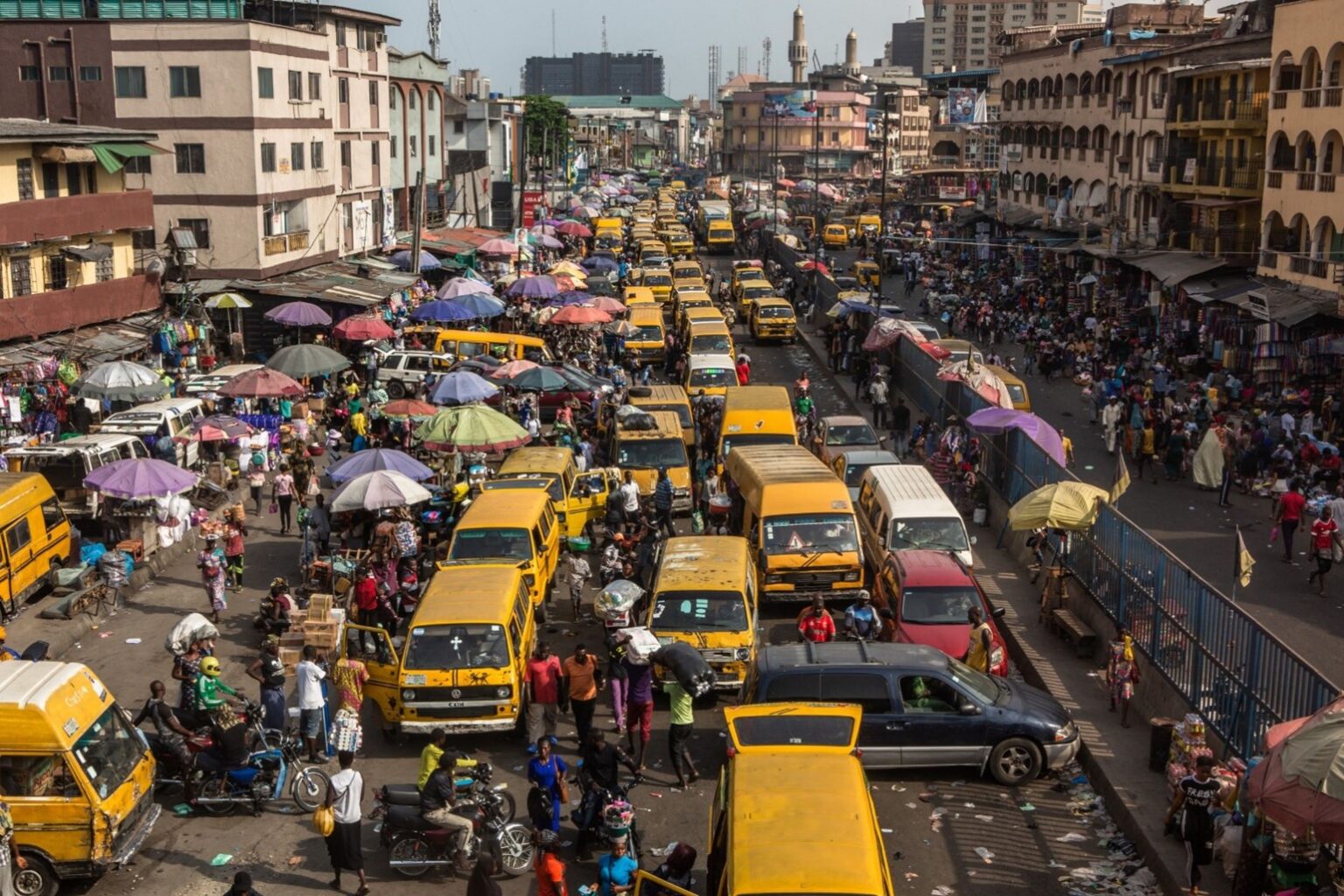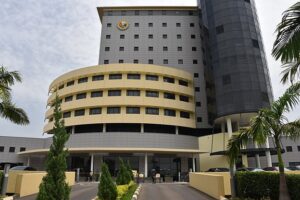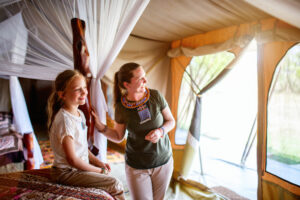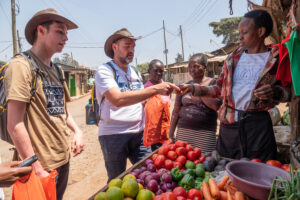Introduction
In the heart of Africa, a quiet transformation is underway. Amidst challenges and opportunities, several cities are witnessing the emergence of a vibrant middle class. These cities, which were once the focus of violent strife, are today shining examples of cultural vitality, economic growth, and opportunities for advancement. These cities in Central Africa are reinventing their histories with contemporary skyscrapers and thriving marketplaces. Find here, some of these cities in central Africa experiencing an increase in middle-class demographics.
1. Douala, Cameroon
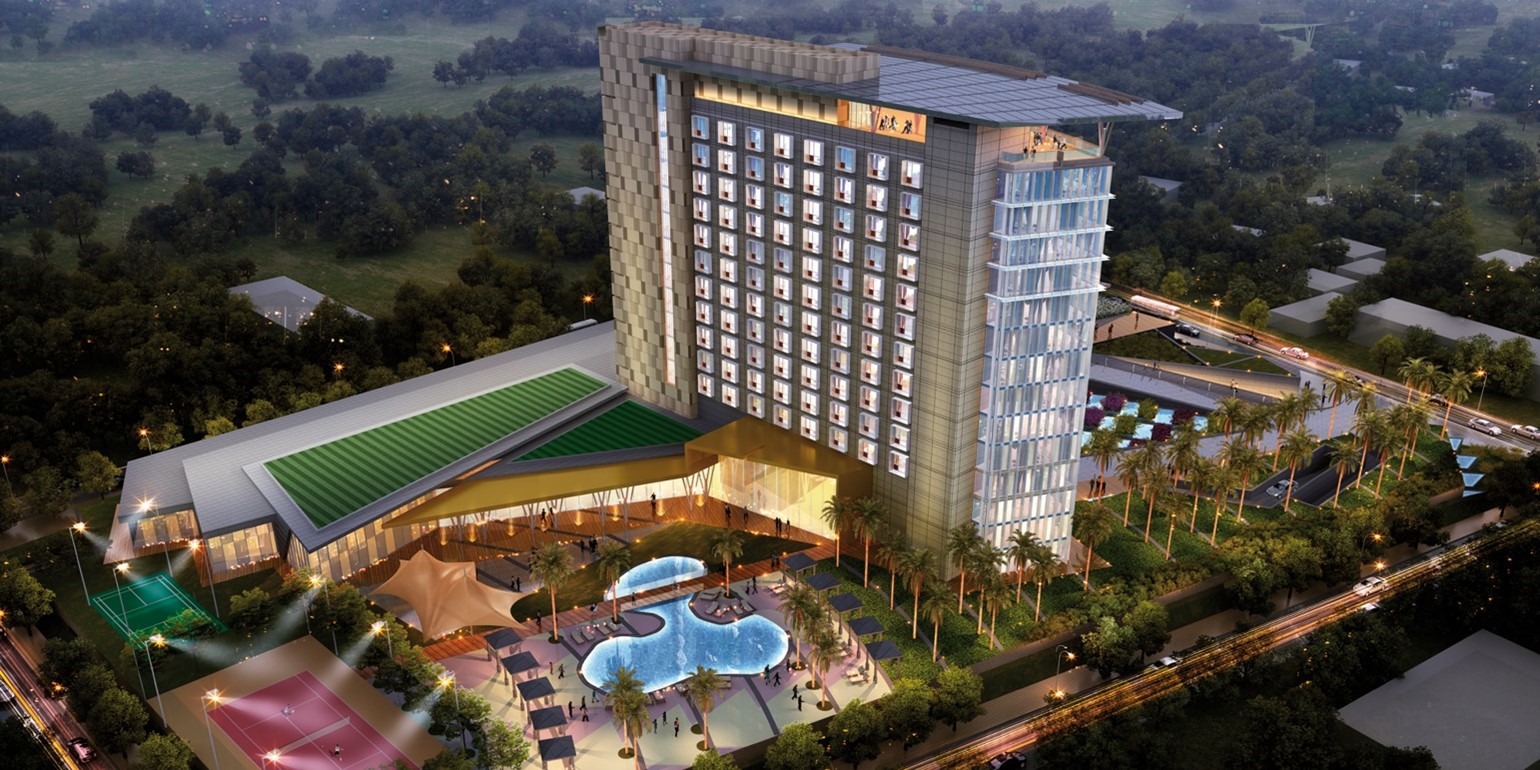
If you’re seeking a city at the beating heart of Central Africa’s economic pulse, think of Douala, Cameroon. As the largest city in the country and its economic capital, Douala stands as a dynamic hub of trade, innovation, and opportunity. Look out for its bustling port, one of the busiest in Central Africa, Douala serves as a gateway to regional and international markets. Whether you’re a business professional, entrepreneur, or simply someone looking to thrive in a city on the rise, Douala offers a diverse range of economic activities, from banking and finance to burgeoning tech startups. With a growing middle class driving its momentum, Douala presents an exciting landscape for those eager to be part of a city on the cusp of greatness.
Pros:
- It is a major economic hub in Cameroon, with a diverse economy driven by trade, banking, and services.
- Its city’s port is one of the busiest in Central Africa, facilitating regional and international trade.
- It has a growing economy and provides various job opportunities, attracting skilled workers and contributing to the middle class.
- It has a vibrant culture, art, and music scene, with numerous art galleries, music festivals, and cultural events.
Cons:
- It faces significant traffic congestion, impacting the quality of life and commute times.
- Some parts of the city lack adequate infrastructure, including reliable electricity and sanitation services.
- It has areas with higher crime rates, which can affect residents’ safety.
- It is the largest city in Cameroon and serves as the economic capital of the country. It is on the Atlantic coast and is a major port city, handling most of Cameroon’s international trade.
- It has a diverse economy, with a strong focus on trade, banking, services, and industry. It hosts numerous small and medium-sized enterprises (SMEs) and large corporations.
- Its port, the Port of Douala, is one of the busiest in Central Africa and plays a crucial role in the country’s economy. It handles a wide range of goods, including petroleum, foodstuffs, and manufactured goods.
- It surrounds itself with industrial zones such as the Bonaberi Industrial Zone, which hosts manufacturing and processing industries.
- It is a transportation hub with an international airport, Douala International Airport, connecting the city to various destinations.
2. Yaoundé, Cameroon
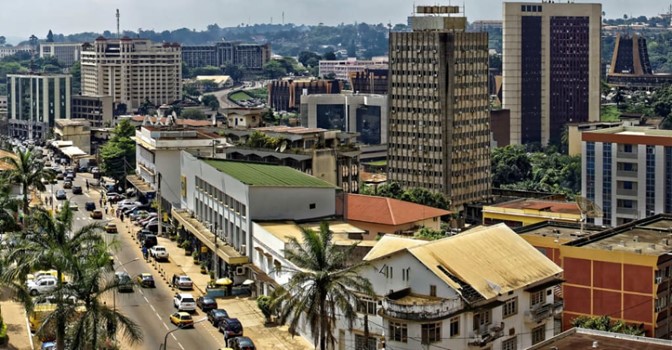
If you love a city that blends rich cultural heritage with a thriving spirit of innovation, that’s Yaoundé. Yaoundé, Cameroon, is the perfect city for culture and innovation. As Cameroon’s capital, Yaoundé blends history, education, and modernity. It attracts top students from throughout the region with its top universities and research organizations. Galleries displaying traditional and contemporary art demonstrate the city’s cultural diversity. Yaoundé has a booming IT sector and entrepreneurship potential. It is a vibrant place for scholars, artists, and techies to learn, create, and develop.
Pros:
- It has several universities and educational institutions, attracting students and academics.
- It provides stable employment opportunities.
- It has a growing tech industry, fostering innovation and entrepreneurship.
- It offers cultural attractions, historical sites, and a relatively low cost of living compared to some other capitals.
Cons:
- It experiences traffic congestion, especially during rush hours.
- It has limited job market, especially for those outside government or academia.
- Its infrastructure development can be lacking in some areas, affecting services like water and electricity.
- It faces periodic political tensions.
- It is the capital and second-largest city in Cameroon, in the central region of the country. popular for its hilly terrain and greenery.
- It is the political capital—Yaoundé hosts the country’s government institutions, including the presidency, ministries, and embassies.
- It is a major educational center with several universities, including the University of Yaoundé I and the University of Yaoundé II, attracting students from across the country.
- It has a growing technology sector, with startups and tech companies contributing to the city’s economy.
- It has several hospitals and healthcare facilities, including the Central Hospital of Yaoundé.
- It offers cultural attractions such as the National Museum, traditional markets like Mokolo Market, and the Nsimalen Lake.
3. Libreville, Gabon
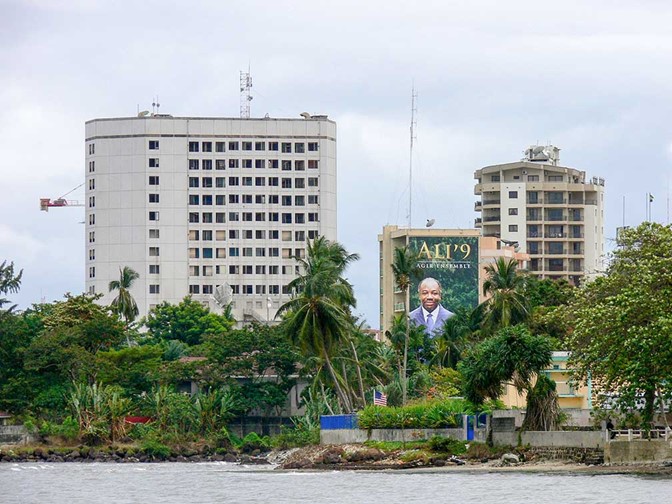
If you love a city that embodies both opportunity and luxury, Libreville, Gabon, stands as a shining gem on the African continent. As the capital and largest city of Gabon, Libreville boasts a unique blend of economic prosperity and natural beauty. At its core lies the wealth generated by Gabon’s significant oil reserves, creating a cityscape of modern skyscrapers, luxury hotels, and upscale shopping centers. Libreville’s status as a financial and business hub in Central Africa provides ample opportunities for entrepreneurs and professionals alike. Beyond its economic prowess, the city offers pristine beaches, lush parks, and a vibrant cultural scene. Whether you’re drawn to the promise of business success or the allure of a luxurious lifestyle, Libreville beckons as a city of boundless opportunity and indulgence.
Pros:
- Benefits from Gabon’s significant oil reserves, lead to a high standard of living for many residents.
- Offers diverse economic opportunities in oil, trade, and services.
- Experiences constant infrastructure development, including modern buildings and transportation systems.
- Has a relatively stable government, unlike some neighboring countries.
Cons:
- There are stark income inequalities in Libreville, with a small elite benefiting the most.
- The city can be expensive, particularly for housing and certain imported goods.
- The traffic is challenging at times, especially during peak hours.
- The economy’s heavy reliance on oil can limit job diversity for residents.
- It is the capital and largest city of Gabon, located on the Atlantic coast. It is one of the wealthiest cities in Africa due to Gabon’s significant oil reserves.
- It attracts international oil companies and expatriates because Gabon’s oil industry is centered in and around Libreville,
- It has a diverse economy, with sectors including oil and gas, timber, mining, and services.
- It has modern infrastructure compared to many African cities, with modern buildings, shopping malls, and luxury hotels.
- It hosts government offices, including the presidential palace and the National Assembly.
- It has cultural attractions such as the Léon Mba Presidential Palace, St. Michael’s Cathedral, and the Pongara National Park.
- It has beautiful beaches, including Pointe Denis Beach and Cap Esterias Beach.
4. Brazzaville, Republic of the Congo
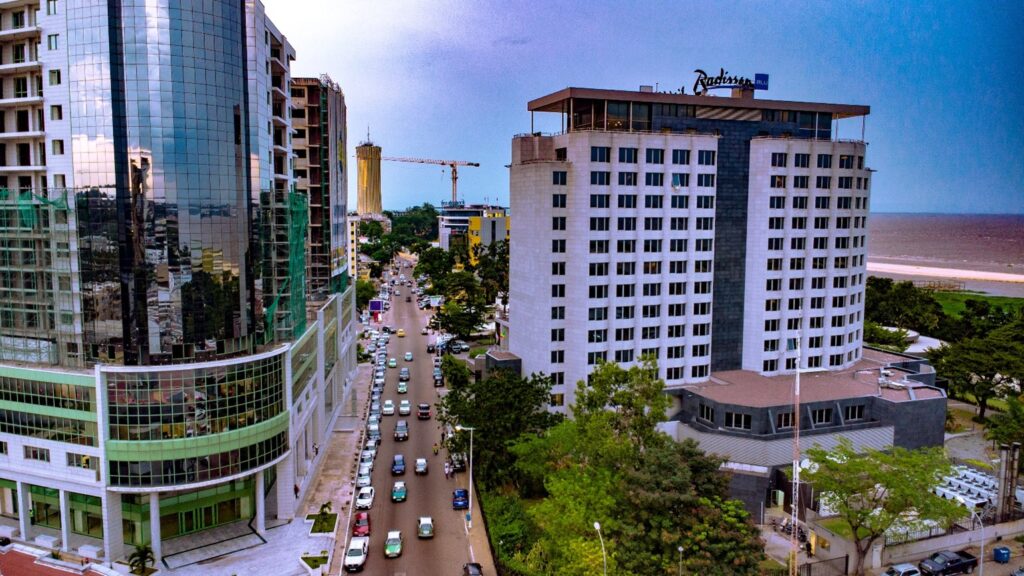
Brazzaville, the capital of the Republic of the Congo, offers a captivating blend of cultural charms and economic vibrancy, making it an enticing choice for you if you seek a unique experience in Central Africa. Along the majestic Congo River, this city boasts colonial-era architecture and bustling markets, offering a glimpse into its rich heritage. As the economic center of the country, Brazzaville boasts a diverse economy encompassing finance, construction, telecommunications, and services, providing a plethora of opportunities for business ventures and career growth. The city’s cultural attractions, such as the Basilique Sainte-Anne and the National Museum, offer a deep dive into Congolese heritage, while its proximity to Kinshasa in the neighboring DRC provides cross-border opportunities. Whether you’re an entrepreneur seeking new ventures, a history buff eager to explore, or a culture enthusiast ready to immerse yourself in the rhythms of Central Africa, Brazzaville awaits you with open arms.
Pros:
- It is a key economic center in the Republic of the Congo, with industries in finance, construction, and services.
- It hosts government institutions, providing stable employment.
- It has historical and cultural sites, attracting tourists and preserving local traditions.
- It provides cross-border economic opportunities because it is close to Kinshasa in the DRC.
Cons:
- It has limited infrastructure
- It experiences political instability
- It has high poverty rates, especially in informal settlements.
- It has areas with higher crime rates, affecting safety.
- It is the capital and largest city of the Republic of the Congo, on the Congo River’s south bank, across from Kinshasa (Democratic Republic of the Congo).
- Its economy is diverse, with sectors including finance, construction, telecommunications, and services.
- It hosts government institutions, including the presidency, ministries, and the National Assembly.
- It has cultural sites such as the Basilique Sainte-Anne, the National Museum, and the Livingstone Falls.
- It has Maya-Maya Airport for domestic and international flights, and the city is connected to Kinshasa by a ferry service.
- It has development projects such as new hotels, shopping centers, and residential buildings.
5. Bangui, Central African Republic
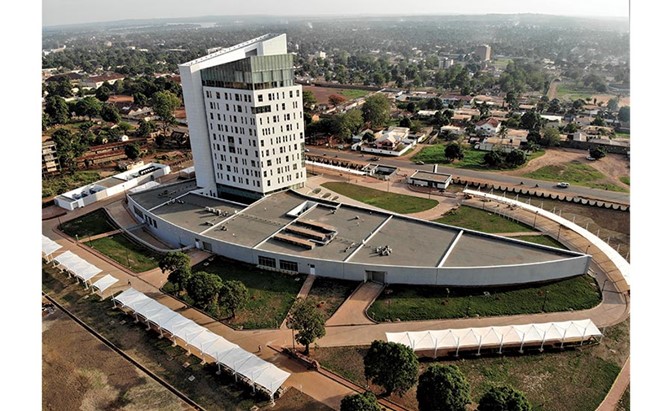
Bangui, the capital of the Central African Republic, beckons with its vibrant cultural tapestry. This city along the Ubangi River offers a unique blend of ethnicities, languages, and traditions, providing a rich and immersive experience. Dive into bustling markets, vibrant music, and diverse cuisine as you explore the resilience and warmth of its people. Despite challenges, Bangui’s spirit shines through, offering a glimpse into authentic African life. For adventurers seeking cultural immersion and untapped frontiers, Bangui is a gateway to a captivating mosaic of cultures in the heart of Africa.
Pros:
- It hosts government services, providing employment opportunities.
- It has investments in telecommunications and banking sectors, creating jobs.
- It has a diverse population, contributing to its cultural vibrancy.
- Its infrastructural projects are underway to improve roads and services.
Cons:
- It experiences political instability, impacting the economy.
- Its poverty rates remain high, especially outside urban areas.
- It has limited access to quality healthcare
- It has certain areas with security concerns, affecting residents’ safety.
- It is the capital and largest city of the Central African Republic, situate on the northern banks of the Ubangi River.
- It has an economy that centers on government services, trade, and agriculture. It is a market hub for agricultural products.
- It hosts government institutions, including the presidency, ministries, and the National Assembly.
- It has a diverse population with various ethnic groups and languages.
- It has cultural attractions including the Boganda Museum, the Cathedral of Bangui, and the Ubangi River.
6. N'Djamena, Chad
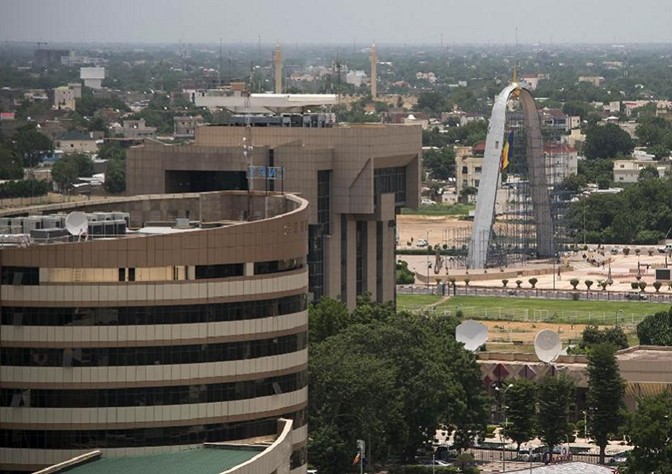
N’Djamena, the capital of Chad, is a thriving hub of economic potential and cultural fusion. This city on the Chari River offers diverse opportunities in oil, agriculture, trade, and services. Its modern infrastructure and growing economy make it an attractive destination for professionals and entrepreneurs. Immerse yourself in a blend of traditional Chadian heritage and modern influences, seen in its architecture, cuisine, and arts scene. With a trajectory of growth and development, N’Djamena is a dynamic city ready to welcome those seeking new horizons and a vibrant blend of culture and opportunity.
Pros:
- Has a diverse economy with sectors such as oil, agriculture, and trade.
- Benefits from Chad’s oil industry, providing employment and revenue.
- Has cultural attractions and a diverse population.
- Features ongoing infrastructure development, improving services and connectivity.
Cons:
- Has a high poverty rate.
- Has limited job opportunities outside of certain industries.
- Faces political challenges that can impact stability and the economy.
- Limited access to quality healthcare
- It is the capital and largest city of Chad, situated on the eastern bank of the Chari River.
- Its economy is diverse, with sectors including oil and gas, agriculture, trade, and services.
- Chad’s oil industry is centered in and around N’Djamena, attracting international oil companies.
- It has cultural sites such as the National Museum, the Grande Mosquée, and the N’Djamena Central Market.
- Its International Airport serves as a transportation hub for the country.
- It has ongoing Infrastructure projects to improve roads, bridges, and public facilities.
7. Malabo, Equatorial Guinea
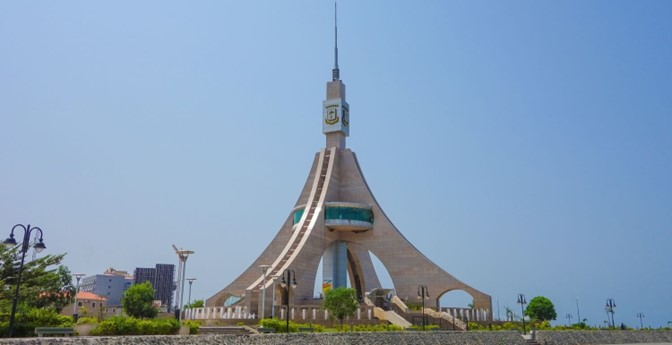
Malabo, the capital of Equatorial Guinea, offers a unique blend of oil wealth and natural splendor. Situated on Bioko Island, this city boasts modern skyscrapers and luxury hotels, reflecting its status as a top oil producer. Explore stunning beaches, lush rainforests, and diverse wildlife, immersing yourself in nature’s beauty. With opportunities in the lucrative oil industry and a rich cultural heritage to discover, Malabo presents a unique and dynamic experience. Whether you seek professional growth, natural wonders, or cultural exploration, Malabo invites you to a world of prosperity and beauty in Central Africa.
Pros:
- Benefits significantly from Equatorial Guinea’s oil wealth, leading to a high standard of living.
- Offers employment in oil and gas industries, as well as government positions.
- Undergoes significant infrastructure development.
- Has a stable government, providing a predictable business environment.
Cons:
- Has high income inequality.
- Relies heavily on oil, which can lead to volatility.
- Presents high cost of living
- Features high cost of living especially for imported goods.
- Has limited political freedoms.
- It is the capital and largest city of Equatorial Guinea, located on Bioko Island in the Gulf of Guinea.
- It relies heavily on the oil and gas industry, with significant foreign investment.
- It is one of Africa’s top oil producers, and Malabo is a major center for the industry.
- It sees significant infrastructure development, including modern buildings, hotels, and shopping centers.
- It hosts government offices, including the presidential palace and ministries.
- Its Cultural attractions include the National Museum of Equatorial Guinea, the Malabo Cathedral, and the Malabo Botanical Gardens.
Overview of the Central African Cities With a Growing Middle Class
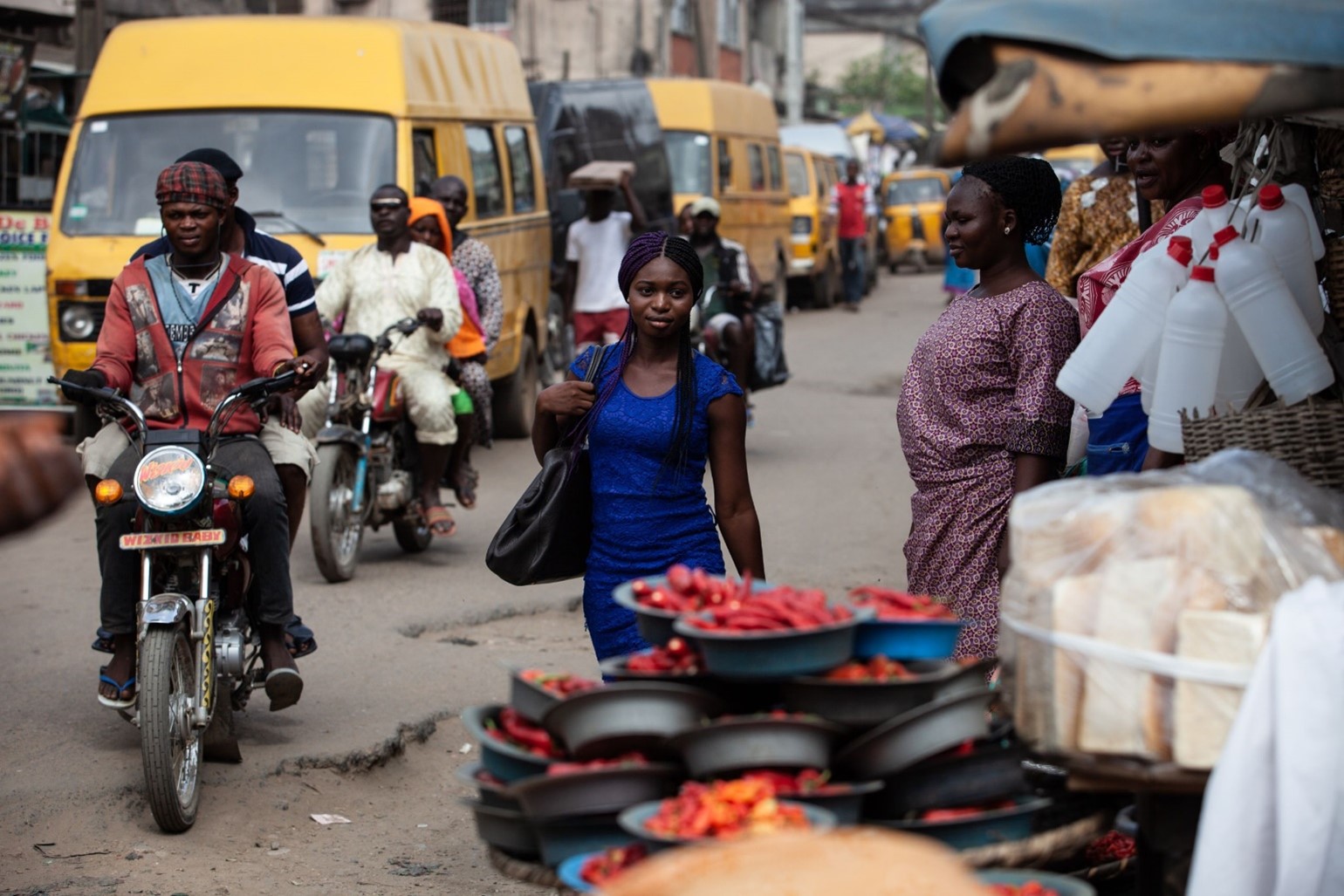
Due to commerce, banking, and oil prospects, Central African cities like Douala, Yaoundé, Libreville, Brazzaville, Bangui, N’Djamena, and Malabo have developing middle classes. Each city’s history, economy, and social dynamics create a distinct ecosystem. State presence, cultural attractions, and infrastructure development are advantages, yet traffic congestion, limited infrastructure, income disparity, and political instability persist. Government presence is noticeable in Yaoundé and Bangui, while oil wealth affects Libreville and Malabo. Urbanization difficulties persist despite the diversity and economic prosperity, emphasizing the need for sustainable and inclusive growth in the region.
How to Choose From the Central African Cities With a Growing Middle Class
Consider the diverse economic opportunities in Douala, Yaoundé, and Libreville; job market availability in trade, government, and oil; cost of living, which tends to be higher in cities like Libreville and Malabo; quality of infrastructure and services, with Yaoundé and Libreville generally having better facilities; and safety considerations. Your lifestyle, work, and family demands will help you choose the right Central African city.
Pros and Cons of the Central African Cities With a Growing Middle Class
Pros:
- Economic Growth: These cities offer a range of economic opportunities, attracting a growing middle class through industries such as trade, banking, oil, and services.
- Job Opportunities: With economic growth comes a diverse job market, providing employment in various sectors for skilled and educated workers.
- Government Presence: Many of these cities are capitals or have a significant government presence, offering stable jobs and services.
- Cultural Attractions: Each city has its unique cultural attractions, including museums, historical sites, and vibrant markets.
- Educational Hubs: Some cities are educational centers with universities and institutions, attracting students and academics.
Cons:
- Traffic Congestion: Traffic congestion is a significant issue in many of these cities, leading to longer commute times and reduced quality of life.
- Limited Infrastructure: Some areas lack adequate infrastructure, including reliable electricity, water, and sanitation services.
- Income Inequality: Despite economic growth, income inequality persists, with a small elite benefiting disproportionately.
- High Cost of Living: Several cities, particularly those with oil wealth, have a high cost of living, making it challenging for lower-income residents.
- Political Instability: Political instability in some countries can impact the economy and create uncertainty for residents. Limited Job Market Diversity: The economies of many of these cities are dependent on specific industries (like oil), limiting job diversity.
Pro Tips
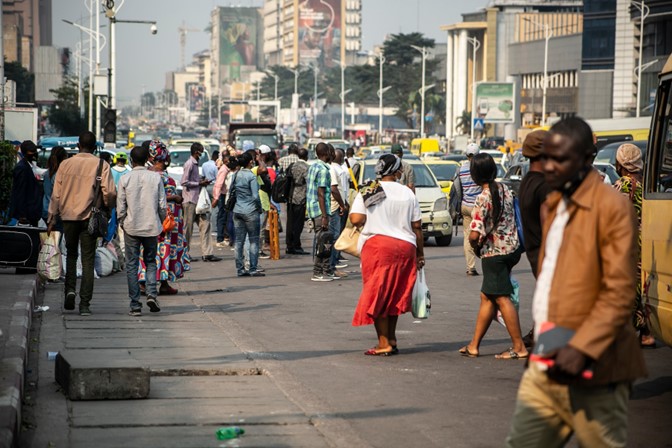
- Research Local Customs and Etiquette: Before arriving, familiarize yourself with local customs, traditions, and etiquette. Respect for local culture goes a long way in building positive relationships and integration.
- Network and Engage: Take advantage of the growing middle-class networks. Attend local events, join community groups, or participate in professional associations to expand your social and professional circles.
- Language Skills: If possible, learn basic phrases in the local languages, such as French, Lingala, or Sango. This not only helps in communication but also shows respect for the local culture.
- Use Reliable Transportation Apps: In cities with traffic congestion, use reliable transportation apps to navigate. Apps like Uber, Bolt, or local equivalents can make commuting easier and more predictable.
- Safety Awareness: While many Central African cities are safe, it’s wise to stay up to date about the local safety situation. Avoid risky areas, use caution at night, and keep an eye on personal belongings.
Recap
These cities in Cameroon, Gabon, Republic of the Congo, Central African Republic, and Equatorial Guinea are witnessing a rise in economic opportunities, cultural attractions, and infrastructure development. From Douala’s bustling port and Yaoundé’s educational hubs to Libreville’s oil wealth and Brazzaville’s historic charm, each city offers unique advantages for professionals, entrepreneurs, and culture enthusiasts. Despite challenges such as traffic congestion and income inequality, the growing middle class in these cities is shaping a promising future of growth, innovation, and cultural richness in the heart of Africa.


